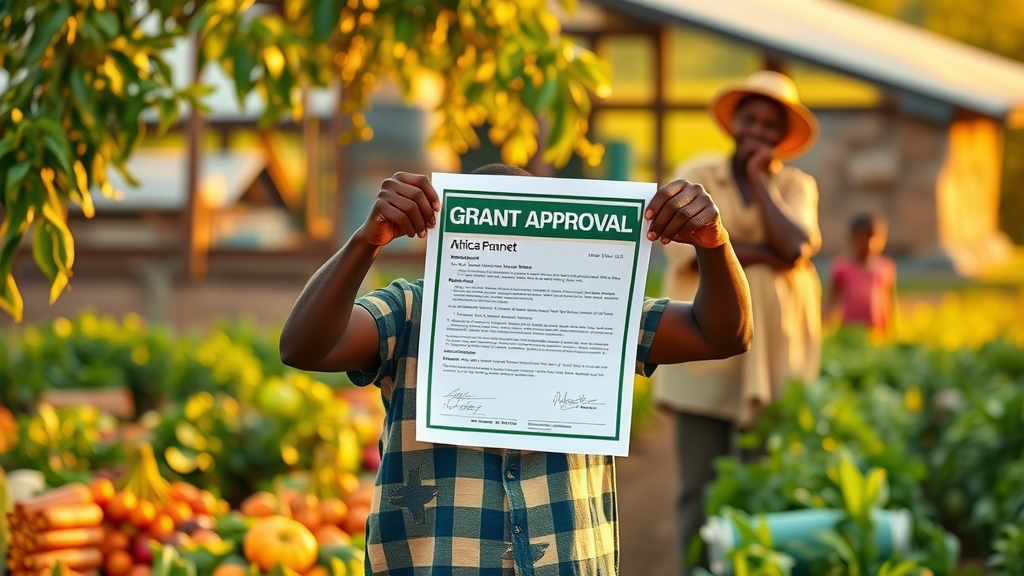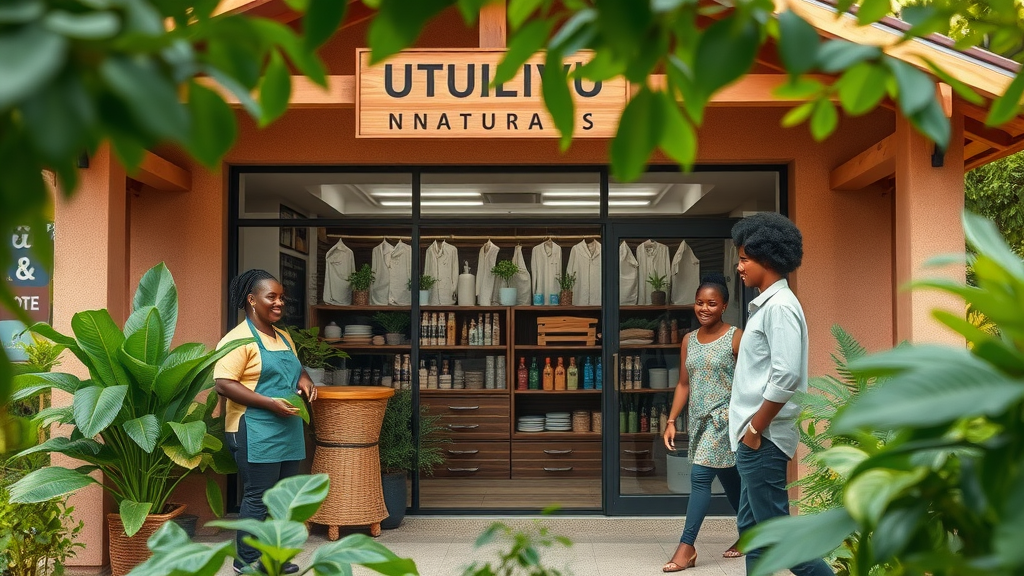Did you know that farmers in Africa can earn thousands of times more by transforming their raw produce into value-added products like essential oils? This startling fact underscores the immense potential of value addition in agriculture as a pathway to economic empowerment and sustainability for farmers across the continent. In this comprehensive guide, we explore why value addition in agriculture is revolutionizing African farming, featuring insights from Hilda Nagujja of Utulivu Naturals Uganda, a pioneering company in this transformative movement. Whether you are a smallholder farmer or an agribusiness enthusiast, understanding and implementing value addition is essential for turning challenging farming ventures into profitable enterprises.
Startling Facts About Value Addition in Agriculture
- Farmers earn thousands of times more from value-added products like essential oils compared to raw produce.
- Less than 20% of African farmers currently engage in value addition, limiting profitability.
- Value addition can transform small-scale farms into sustainable agribusinesses.

Overview of Value Addition in Agriculture
“ Value addition is Africa’s biggest opportunity in agriculture. If you only plan to sell raw produce, be ready for small margins, slow returns, and heartbreak. ” – Utulivu Naturals
Value addition in agriculture refers to the process of enhancing raw agricultural products by transforming them into processed goods that deliver higher market value, longer shelf life, and diversified uses. This shift goes beyond mere selling of raw farm outputs like fruits, vegetables, or grains to include processing, packaging, branding, and marketing.
The significance of moving beyond raw produce cannot be overstated. By adopting value addition practices, farmers can improve farm profitability by tapping into new markets and increasing product appeal. Additionally, value addition fosters sustainability by encouraging local production of finished goods, reducing waste, and promoting environmentally friendly farming.
- Definition of value addition in agriculture
- Importance of moving beyond raw farm products
- How value addition impacts farm profitability and sustainability
Examples of Value-Added Agriculture Products
There are numerous products that exemplify value addition in agriculture . Essential oils from crops like lemongrass represent a highly lucrative and growing segment, especially in Uganda and other African countries. Packaged jams, jellies, and preserves made from local fruits not only extend shelf life but also introduce innovative flavors attractive to both local and export markets.
Processed grains and cereals increase food security and provide farmers with a differentiated product, while non-food products such as packaged organic manure open new revenue streams in sustainable agriculture.
- Essential oils from lemongrass
- Packaged jams, jellies, and preserves
- Processed grains and cereals
- Non-food products like packaged manure

How Value Addition Transforms Farm Products into Profitable Ventures
The process of transforming raw agricultural products into value-added goods involves techniques such as steam distillation, which is used to extract essential oils from lemongrass. This technique not only captures the potent fragrant compounds but also preserves the natural healing properties, making the final product highly desirable in health and beauty industries.
Replacing chemical household products with natural alternatives crafted from value-added agricultural inputs helps meet the growing consumer demand for organic and sustainable goods. The value of the product increases substantially once it is processed, packaged attractively, and branded effectively, enabling farmers to command much higher prices than selling raw produce alone.
- The process of steam distillation for essential oils
- Replacing chemicals with natural products in households
- Increasing product value through processing and packaging

“ A litre of lemongrass essential oil earns thousands of times more than a kilogram of raw grass. ” – Utulivu Naturals
Business Plan Essentials for Added Agriculture Success
Creating a successful value-added agricultural business requires careful planning. Identifying high-value crops that are suitable for value addition, such as lemongrass, assures farmers tap into promising market niches. Sustainable production and marketing strategies that incorporate training, quality control, and customer engagement further enhance profitability.
Furthermore, leveraging available producer grants and funding opportunities can aid in scaling operations, acquiring equipment, and accessing broader markets. By developing a solid business plan, farmers can turn value addition initiatives into thriving agribusinesses.
- Identifying high-value crops suitable for value addition
- Developing a sustainable production and marketing strategy
- Leveraging producer grants and funding opportunities

Sustainability and Community Impact of Added Agriculture
Value addition in agriculture fosters community empowerment by providing training and education that enable farmers to improve their livelihoods. These initiatives promote environmentally responsible farming practices, such as organic inputs and waste reduction, which protect ecosystems and contribute to long-term agricultural productivity.
Building transparent supply chains and fostering strong community connections helps establish trust and ensures fair trade, ultimately benefiting both producers and consumers. The ripple effects of these efforts contribute to improved rural economies and food security.
- Empowering local communities through training and education
- Promoting environmentally responsible farming practices
- Building transparent supply chains and fostering community connection

Producer Grants and Added Producer Grants: Opportunities for Farmers
There are numerous grants available specifically designed to support value-added agriculture in Africa. These grants help farmers access funding for equipment, training, and marketing initiatives, thereby enhancing their capacity to adopt value addition techniques successfully.
Farmers can apply for these grants by demonstrating viable production plans and commitment to sustainable practices. Many success stories illustrate how added producer grants have transformed smallholder farms into profitable agribusinesses, uplifting entire communities.
- Overview of available grants for value-added agriculture
- How to apply and qualify for producer grants
- Success stories of farmers benefiting from added producer grants

Common Misconceptions About Value Addition in Agriculture
Many believe that value addition in agriculture is only feasible for large-scale farms, requiring expensive technology and seemingly high capital investments. However, this is a misconception. Smallholder farmers can start with simple processing techniques and gradually upscale as demand grows.
Another myth is that selling raw produce is sufficient for profitability, but due to fluctuating market prices and limited margins, farmers often struggle financially. Embracing value addition opens doors to greater control over pricing, brand development, and market access, ensuring better livelihoods.
- Value addition is only for large-scale farms
- It requires expensive technology and high capital
- Raw produce sales are sufficient for profitability

Actionable Tips for Adding Value to Your Farm Products
- Start with crops that have proven value addition potential like lemongrass. These crops offer ready markets and accessible processing technologies.
- Invest in simple processing techniques such as steam distillation. This method preserves quality and increases product value significantly.
- Build a strong brand emphasizing natural and sustainable products. Consumer preference for eco-friendly goods is rapidly growing.
- Seek partnerships and training from organizations like Utulivu Naturals. Such collaboration provides knowledge, resources, and market access.
People Also Ask: FAQs on Value Addition in Agriculture
- What is value addition in agriculture?
- What are examples of value-added agriculture?
- Why is value adding important in agriculture?
- How do I add value to a farm?
| Question | Answer Summary |
|---|---|
| What is value addition in agriculture? | Transforming raw farm products into processed goods to increase value and profitability. |
| What are examples of value-added agriculture? | Essential oils, packaged foods, processed grains, and non-food agricultural products. |
| Why is value adding important in agriculture? | It increases income, creates jobs, and promotes sustainable farming. |
| How do I add value to a farm? | By processing raw products, branding, packaging, and accessing markets effectively. |
Key Takeaways on Value Addition in Agriculture
- Value addition significantly boosts farm income and sustainability.
- Choosing the right crops and processing methods is critical.
- Community training and access to grants enhance success.
- Utulivu Naturals exemplifies how value addition transforms African agriculture.
Conclusion: Embracing Value Addition for a Profitable Agricultural Future
“ Let’s transform agriculture. One farm. One plant. One product at a time. ” – Utulivu Naturals
Value addition in agriculture is not just a buzzword; it represents a paradigm shift that can uplift African farmers from subsistence struggling to profitable agripreneurs. By learning from pioneers like Hilda Nagujja of Utulivu Naturals Uganda, farmers are encouraged to embrace this opportunity, harness local resources innovatively, and engage with markets at higher levels. Together, these efforts pave the way for a thriving, sustainable agricultural future across Africa.
Discover Utulivu Naturals Located In Uganda
Utulivu Naturals stands as a beacon for sustainable farming and value addition practices in Uganda. Their growing line of natural healing and beauty products demonstrates the power of harnessing local agricultural resources responsibly while empowering communities.
- Explore a growing line of natural healing and beauty products
- Learn about sustainable farming and value addition practices
- Support community empowerment through responsible agriculture

To further explore the benefits of value addition in agriculture, consider the following resources:
- “Maximizing Profits in Agriculture: The Importance of Value Addition for African Farmers” ( thefarmersjournal.com )
This article discusses how value addition can significantly increase farmers’ incomes by transforming raw produce into higher-value products.
- “Value Addition on Kenya’s Key Food Crops is Crucial to Eradicating Hunger” ( businessdailyafrica.com )
This piece highlights the role of value addition in enhancing food security and reducing post-harvest losses in Kenya.
If you’re serious about enhancing farm profitability and sustainability, these resources provide valuable insights into the transformative power of value addition in agriculture.
 Add Row
Add Row  Add
Add 




Write A Comment